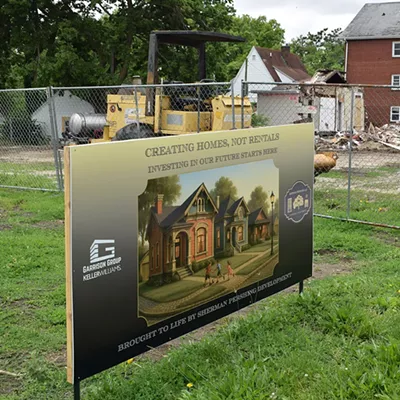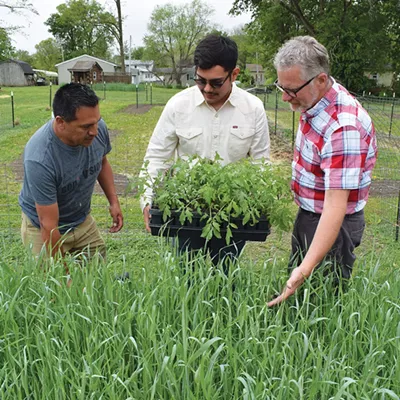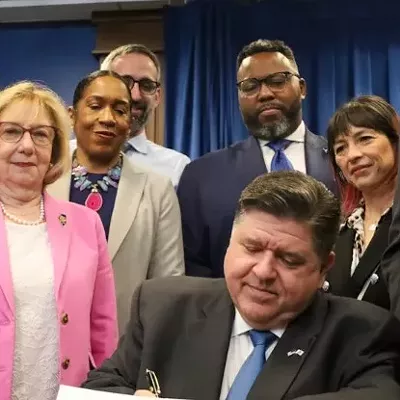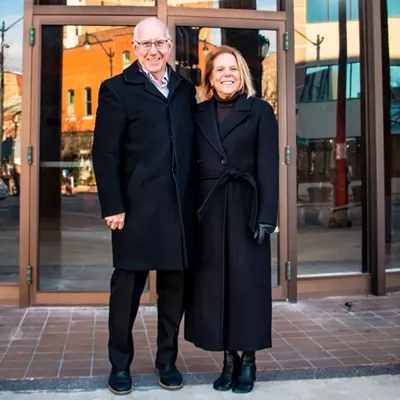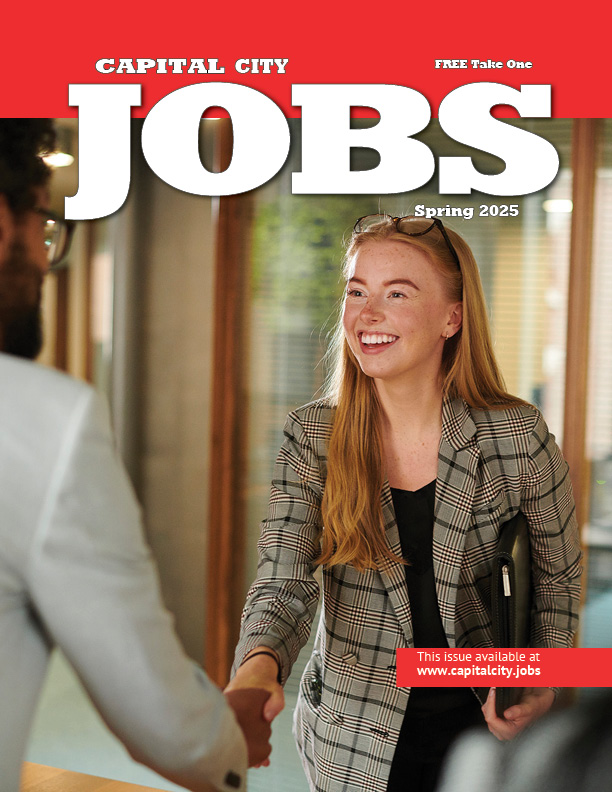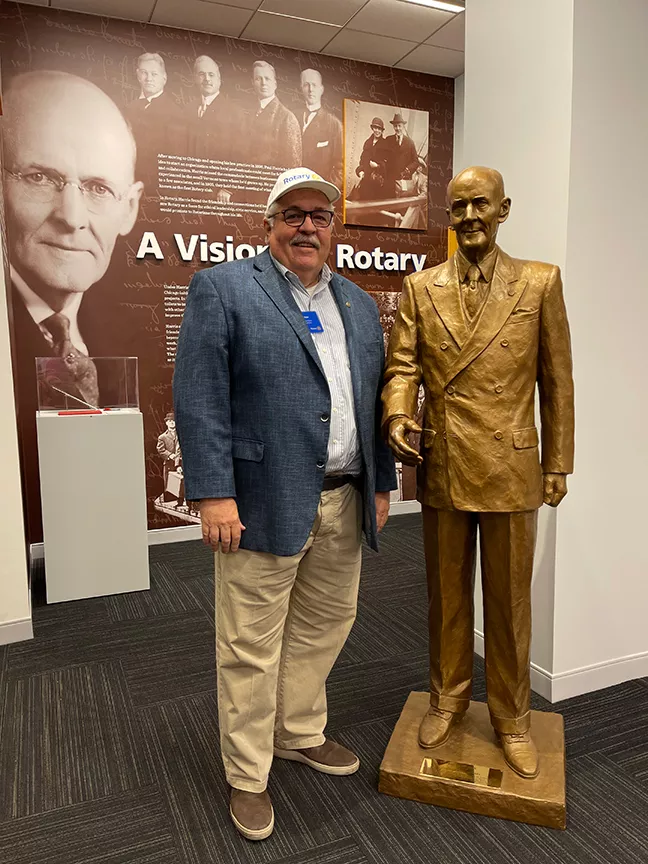
Brian Barstead graduated from Illinois State University with
a bachelor’s degree in medical technology and biology and initially worked for
HSHS St. John’s Hospital in hematology. He met his wife Nancy there, and the
couple has now been married 41 years. They reside in Rochester and have one
adult son, Alex.
After receiving an MBA from Sangamon State University in
1986, he began working as a personal financial planner for IDS Financial
Services, a company owned by American Express that had operated in Springfield
since the 1940s. The company later became known as American Express Financial
Advisors. In 2005, Barstead became one of the first franchisees when the
company transitioned to Ameriprise and began operating under a franchise model.
Barstead closed his office at 700 South Grand Ave. West earlier this year and
transferred operations to Anthology Financial Partners.
Barstead was a musician with the Springfield Municipal Band off
and on for four decades and also served as a docent at the Abraham Lincoln
Presidential Library and Museum. He has been a Rotarian since 1990 with the
Springfield Sunrise Club and has served in a number of roles with the club and
district. In July, he began serving a three-year term with the Rotary
Foundation of Rotary International as its Downstate Illinois Coordinator.
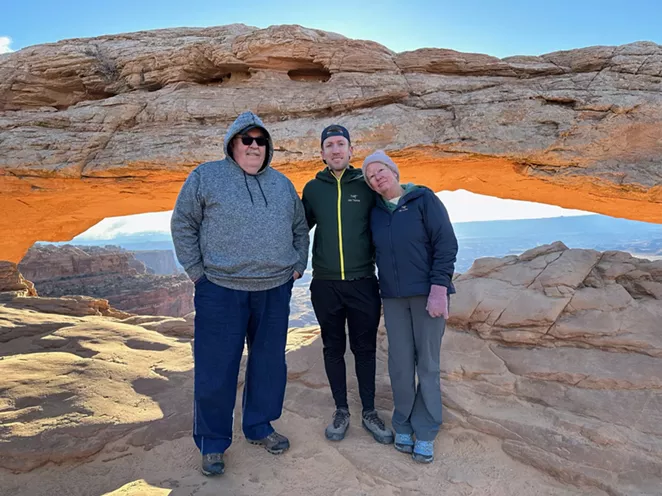
Where were you born and raised, and what was your first job?
I was born in Lincoln and raised in Springfield. I live in Rochester now and have lived in Sangamon County pretty much my whole life. My first job was being a paperboy.
Why did you decide to transition from a career in health care to being a financial adviser?
I was working as a medical technologist at St. John's and didn't really like it that much. So I went to Sangamon State University and got my MBA, then looked into trying to combine health care and marketing.
I noticed an ad for IDS Financial Services, which morphed into Ameriprise. Personal financial advising sounded interesting, so that's what I decided to do in 1986.
What is the most rewarding aspect of your career?
The relationships I've developed over the years. Plus, I was in a field where I could control my schedule so I could do other things besides work. I got involved with Rotary, which helped me to make friendships locally and internationally, people I would have never met or gotten to know.
Why should people begin planning their retirement from the moment they first become employed?
The alternative is not pretty, because we're seeing some indications that the dollar isn't going to be worth as much in the future as it is today. So if you don't save money for a rainy day, you'll get hit by one for sure.
During 37 years in the profession, I realized the power of systematic savings. The people who walked in my door weren't named Rockefeller or Kennedy, but they were blue-collar millionaires that you would never expect if you met them on the street. They were just people who kept saving their money and put their money to work in various ways that made sense over a long period of time, and then managed their money when they retired.
We get these letters every year saying the Social Security Administration is going to run out of money in X number of years, that Medicare is going to be struggling. They keep sending those letters for a reason, so I think people need to heed those warnings.
How much impact do elections have on the viability of retirement investment plans?
It depends on what programs the leaders decide to initiate that give people alternatives on how to save money. When I first started in business IRAs were a new thing, then our elected leaders gave us Roth IRAs.
But for the most part, all that politics does is gin up emotions. I've seen people decide to get out of the market because they were worried about what was going to happen when there was a transition from one politician to the next, and it generally didn't work out well for them. People need to chill a little bit. There's a good probability that four years from now, no matter who gets elected, the world's still going to be here and we're going to be dealing with some of the same issues.
Why do people often underestimate the amount they should save for retirement?
The biggest killer of financial plans is procrastination, not underestimation. It's easy to put things off and say you can't afford to do something right now. By the time you get around to planning you haven't done anything during your younger years, and you don't have a base to start with.
Sometimes people don't see their doctor when they've got something they think should be checked out. Ignorance is bliss in their minds, but it's not, it's dangerous.
Now that you are retired, what do you realize about the value of the advice you've given your clients over the years?
The most valuable thing that advisers do is help people to cope with the ups and downs of life and help them to make rational decisions. Being a financial adviser, I never really had my own adviser until recently. Working with my own adviser has been challenging because I've been able to do pretty darn well myself, but I'll have a need for more advice as I get older and run out of current knowledge about what's going on in the financial world.
Why is it important to give back to the community through volunteer and service work, especially when you are retired?
It gives you structure and purpose in your life when you're retired, and it's even more fun because you don't have all the other competing things on your schedule. It also makes a difference. Rotary does a lot of good things and it helps you to build friendships while doing them.
What advice would you give to young people entering the career field today?
Kids now talk to each other using their devices, and there is not as much personal interaction. You need to be able to relate to people. Try to better develop your social skills, especially around people that aren't your age, and that will help you to build empathy. A good way to do that is by joining service clubs like Rotary.
What might people be surprised to learn about you?
I'm not really that passionate about money, but I like seeing what it can do for people. Charlie Brown once told Linus, "Happiness is having three things to look forward to and nothing to dread." That has been an important philosophy for me. I have met people with lots of money who aren't that happy, and people with little money who are happy as can be. So what I have learned is that money is a tool in the toolbox that helps people have experiences and things they need and want.

